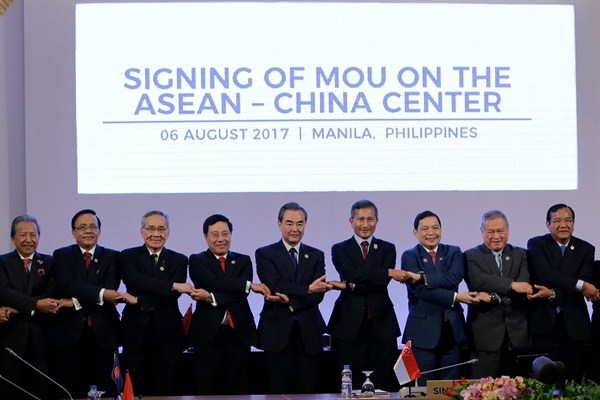Earlier this month, following a foreign ministers’ meeting of the Association of Southeast Asian Nations (ASEAN) in the Philippines, China and its Southeast Asian neighbors announced that they had agreed on a framework, or broad outline, for negotiating a code of conduct in the contested South China Sea. In theory, a code of conduct, or a set of accepted norms, could set guidelines on activities allowed in the sea, including militarization and land reclamation. Any code would not resolve territorial disputes, though.
Both Philippine and Chinese leaders touted the adoption of a framework as a step toward reducing tensions in the South China Sea. Chinese Foreign Minister Wang Yi announced that Beijing would also be willing to launch negotiations about a specific code of conduct in November.
The development seems, on the surface, like significant progress in the South China Sea. In recent weeks, Southeast Asian nations have also taken some actions that may be designed to cool tensions in the disputed waters, although Beijing has not always reciprocated. In early August, Vietnam suspended plans to allow the Spanish company Repsol to drill in an area of the South China Sea claimed by both Hanoi and Beijing. The Philippines later announced that any plans for oil exploration around Reed Bank would be put on hold. In July, Philippine President Rodrigo Duterte appeared to be considering allowing drilling around Reed Bank, another area also claimed by Beijing, for the first time since 2014.

